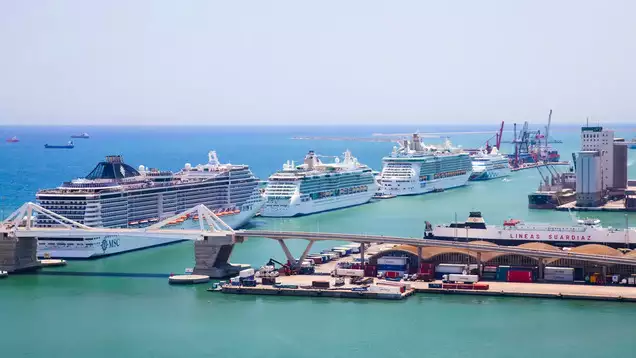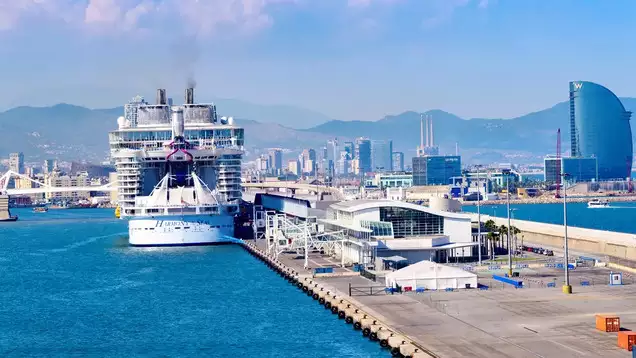Barcelona plans to raise tourist tax to tackle overtourism

As per the latest development, Barcelona’s mayor, Jaume Collboni, plans to increase the tourist tax for cruise passengers staying in the city for less than 12 hours. This is part of his ongoing efforts to address the impact of mass tourism in the Catalan capital. Collboni, a member of the Catalan Socialist party, has introduced several measures aimed at reducing overtourism and improving the city’s housing situation since taking office last year.
Recently, Collboni announced a plan to end apartment rentals to tourists by 2028 by revoking the licenses of the 10,101 currently approved short-term rental apartments. This move follows widespread protests across Spain against the negative effects of the booming tourist industry on residents’ daily lives.
Collboni also stated his intention to raise the current €7 (£6) daily tax paid by cruise passengers to ensure the city benefits more from their brief visits. “Barcelona is a city open to visitors, and tourism is an important sector of its economy,” he said. “However, I am determined to tackle the consequences of mass tourism. This includes going through with the ban on tourist flats by 2028 and significantly raising the tax for short cruise stopovers.”
Collboni explained that tourist flat rentals and brief cruise visits were contributing to problems in the city, affecting both public space usage and housing availability. He emphasized that the city prioritizes the right to housing over tourist accommodations. “For stopover cruise passengers staying less than 12 hours, the intensive use of public space without benefiting the city leads to a sense of occupation and saturation. We want tourism that respects its destination,” he added.
Although Collboni did not specify how much the tax would be increased, he mentioned that studies were underway. The goal is not to deter cruise visitors but to ensure they contribute fairly and generate revenue for local projects, such as installing air conditioning in schools. He reassured that the ban on tourist flats would not discourage visitors, noting that the city and surrounding areas have sufficient hotel capacity for large events.

Last year, Spain welcomed a record 85.1 million international tourists, a 19% increase from 2022, despite its population of 47 million. The unchecked growth of tourism has sparked numerous protests across the mainland, the Balearic Islands, and the Canaries. Protesters are primarily concerned about the adverse effects of tourism on the housing market and local quality of life.
Groups like Prou Eivissa (Enough Ibiza) and Canarias se Agota (The Canaries Have Had Enough) have highlighted the strain on resources and public services due to the surge in tourism. Another major protest, organized by the Menys Turisme, Més Vida (Less Tourism, More Life) platform, is scheduled to take place in Palma, Mallorca, under the slogan “Let’s change path, let’s put limits on tourism.”
Originally Published at TIMESOFINDIA






